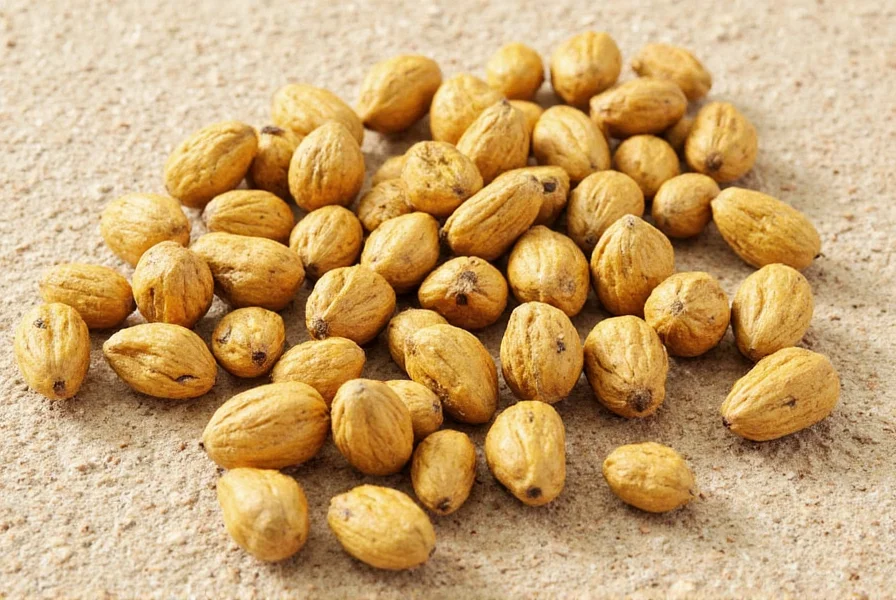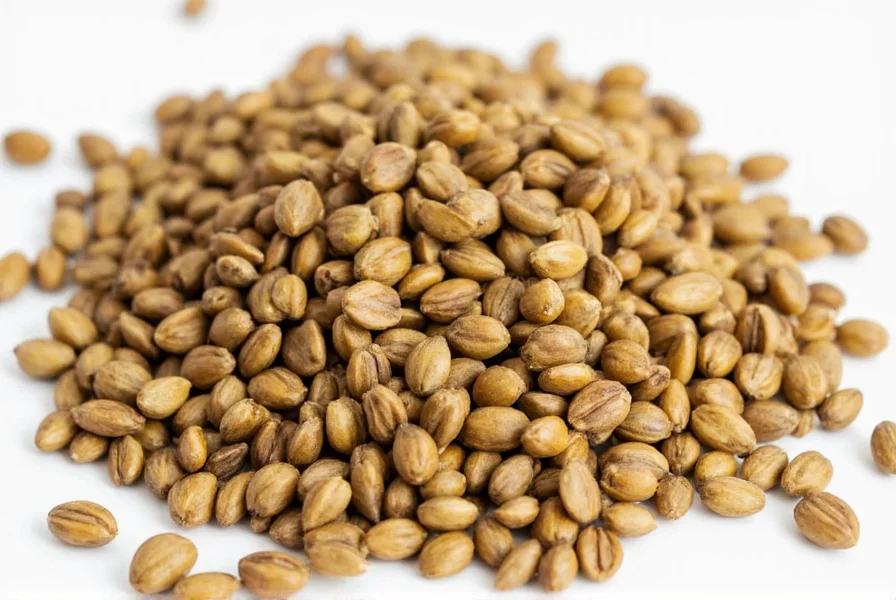When Jesus told His disciples that faith "as small as a mustard seed" could move mountains, He wasn't prescribing a specific measurement of belief. This powerful metaphor appears in two Gospel accounts: Matthew 17:20, where Jesus explains why the disciples failed to heal a boy with epilepsy, and Luke 17:6, where He connects this concept to forgiveness and obedience. The mustard seed, one of the smallest seeds in Jesus' agricultural context, produces a plant that grows up to 10 feet tall—making it an ideal illustration of how seemingly insignificant faith can yield extraordinary outcomes when rooted in God's power.
The Biblical Context of Mustard Seed Faith
In Matthew 17, the disciples approached Jesus privately after failing to heal a boy suffering from seizures. Jesus' response reveals a critical misunderstanding about faith: "Because of your little faith," He explained. "For truly I tell you, if you have faith as small as a mustard seed, you can say to this mountain, 'Move from here to there,' and it will move. Nothing will be impossible for you." The original Greek uses the phrase "kokko mustardio" (κόκκῳ σινάπεως), specifically referencing the black mustard plant common in first-century Palestine.
Luke's account presents a slightly different context, where Jesus connects mustard seed faith to radical forgiveness: "If you have faith as small as a mustard seed, you can say to this mulberry tree, 'Be uprooted and planted in the sea,' and it will obey you." Both passages emphasize that effective faith isn't about quantity but about authentic connection to divine power.
| Gospel Account | Context | Specific Teaching |
|---|---|---|
| Matthew 17:14-20 | Disciples' failure to heal epileptic boy | "Faith as small as a mustard seed can move mountains" |
| Luke 17:5-6 | Request for increased faith | "Faith as small as a mustard seed can uproot trees" |
Understanding the Mustard Seed Metaphor
The mustard seed (Sinapis nigra) measures approximately 1-2 millimeters in diameter—among the smallest agricultural seeds in the region. Yet this tiny seed produces a robust shrub reaching 8-10 feet in height, with an extensive root system. Jesus chose this specific example deliberately, as Palestinian farmers would recognize the dramatic transformation from nearly invisible seed to substantial plant.

Contrary to popular interpretation, Jesus wasn't suggesting we need only "a little" faith. The phrase "as small as" (Greek: elachistos) actually means "of the size of"—emphasizing that faith's effectiveness comes from its nature, not its quantity. A single mustard seed contains the complete genetic blueprint for the entire plant; similarly, authentic faith contains the complete potential for miraculous outcomes when connected to God's power.
Common Misinterpretations of Mustard Seed Faith
Many modern interpretations misrepresent this teaching in three significant ways:
- The "Name It and Claim It" distortion—suggesting that sufficient faith guarantees specific material outcomes, which contradicts Jesus' emphasis on God's sovereignty
- The quantitative misunderstanding—focusing on increasing the "amount" of faith rather than cultivating authentic trust
- The magical thinking approach—treating faith as a spiritual force we manipulate rather than relational trust in God
Jesus' teaching actually challenges our tendency to measure spiritual realities quantitatively. The mustard seed metaphor reveals that what matters isn't how much faith we muster, but whether our faith connects us to the divine source of power. This explains why the disciples' collective efforts failed while a single woman's quiet touch on Jesus' robe brought healing (Mark 5:28-29).
Practical Applications of Mustard Seed Faith Today
Understanding this concept transforms how we approach challenges:
- In impossible situations—When facing circumstances that seem immovable (financial hardship, health crises, relational brokenness), mustard seed faith focuses not on the size of the problem but on the character of God
- In persistent prayer—The mustard plant's deep roots illustrate how consistent, faithful prayer establishes spiritual groundwork for breakthrough
- In community impact—Just as a single mustard plant creates shelter for birds, authentic faith generates outward-focused compassion and service
Consider the story of Corrie ten Boom, who maintained faith in a concentration camp with nothing but a smuggled Bible. Her "mustard seed" trust in God's presence transformed her suffering into a platform for forgiveness and healing worldwide. This exemplifies how genuine faith—however small it may seem—produces exponential impact when rooted in divine truth.
Cultivating Authentic Mustard Seed Faith
Developing this kind of faith involves several intentional practices:
Focus on God's character rather than circumstances—The mustard seed's potential comes from its genetic code, not external conditions. Similarly, our faith grows when we fix our attention on God's faithfulness rather than our difficulties. When Peter walked on water, he succeeded as long as he kept his eyes on Jesus (Matthew 14:30).
Embrace faithful obedience in small things—Jesus connected mustard seed faith with everyday obedience: "If you have faith as small as a mustard seed... it would obey you" (Luke 17:6). Authentic faith demonstrates itself through consistent, faithful action in ordinary circumstances.
Allow faith to take root through spiritual disciplines—Just as the mustard plant develops extensive roots, genuine faith grows through regular engagement with Scripture, prayer, and community. The early church's explosive growth began with ordinary people whose small but authentic faith transformed their world.
Conclusion: Beyond the Quantity-Quality Distinction
The mustard seed metaphor ultimately redirects our focus from self-assessment to divine empowerment. Jesus didn't say "increase your faith" but "if you have faith"—shifting attention from our performance to God's power. This understanding liberates believers from the pressure of measuring their spiritual progress while challenging superficial notions of faith. True mustard seed faith acknowledges our limitations while trusting God's limitless power, producing results that consistently exceed human expectations.
What does 'faith as small as a mustard seed' actually mean?
This phrase means that the effectiveness of faith depends on its authenticity and connection to God's power, not its quantity. Just as a tiny mustard seed contains the complete potential for a large plant, even small but genuine faith can produce extraordinary results when rooted in trust in God's character and power.
Where in the Bible is the mustard seed faith mentioned?
The mustard seed faith teaching appears in Matthew 17:20 (in response to the disciples' failure to heal a boy with epilepsy) and Luke 17:6 (in connection with Jesus' teaching about forgiveness and obedience). Both passages use the mustard seed as a metaphor for the transformative potential of authentic faith.
Does mustard seed faith guarantee that prayers will be answered as we expect?
No, mustard seed faith doesn't guarantee specific outcomes. Jesus emphasized God's sovereignty, not our ability to manipulate spiritual forces. Authentic faith aligns with God's will rather than demanding our preferred results. The effectiveness of mustard seed faith lies in its connection to God's power, not in producing predetermined outcomes according to human expectations.
How is mustard seed faith different from positive thinking?
Mustard seed faith differs fundamentally from positive thinking because it's relational rather than self-focused. Positive thinking relies on human willpower and mental attitude, while mustard seed faith depends on trust in God's character and power. The mustard seed metaphor emphasizes that results come from the divine power connected to authentic faith, not from the strength of our belief or positive mental attitude.
Can someone have mustard seed faith without realizing it?
Yes, mustard seed faith often operates beneath conscious awareness. The woman with the issue of blood (Mark 5:28-29) didn't analyze her faith but simply acted on her belief that touching Jesus' robe would heal her. Authentic faith frequently manifests through action rather than self-assessment, which is why Jesus connected mustard seed faith with practical obedience in Luke 17:6.
Frequently Asked Questions
What does 'faith as small as a mustard seed' actually mean?
This phrase means that the effectiveness of faith depends on its authenticity and connection to God's power, not its quantity. Just as a tiny mustard seed contains the complete potential for a large plant, even small but genuine faith can produce extraordinary results when rooted in trust in God's character and power.
Where in the Bible is the mustard seed faith mentioned?
The mustard seed faith teaching appears in Matthew 17:20 (in response to the disciples' failure to heal a boy with epilepsy) and Luke 17:6 (in connection with Jesus' teaching about forgiveness and obedience). Both passages use the mustard seed as a metaphor for the transformative potential of authentic faith.
Does mustard seed faith guarantee that prayers will be answered as we expect?
No, mustard seed faith doesn't guarantee specific outcomes. Jesus emphasized God's sovereignty, not our ability to manipulate spiritual forces. Authentic faith aligns with God's will rather than demanding our preferred results. The effectiveness of mustard seed faith lies in its connection to God's power, not in producing predetermined outcomes according to human expectations.
How is mustard seed faith different from positive thinking?
Mustard seed faith differs fundamentally from positive thinking because it's relational rather than self-focused. Positive thinking relies on human willpower and mental attitude, while mustard seed faith depends on trust in God's character and power. The mustard seed metaphor emphasizes that results come from the divine power connected to authentic faith, not from the strength of our belief or positive mental attitude.
Can someone have mustard seed faith without realizing it?
Yes, mustard seed faith often operates beneath conscious awareness. The woman with the issue of blood (Mark 5:28-29) didn't analyze her faith but simply acted on her belief that touching Jesus' robe would heal her. Authentic faith frequently manifests through action rather than self-assessment, which is why Jesus connected mustard seed faith with practical obedience in Luke 17:6.











 浙公网安备
33010002000092号
浙公网安备
33010002000092号 浙B2-20120091-4
浙B2-20120091-4